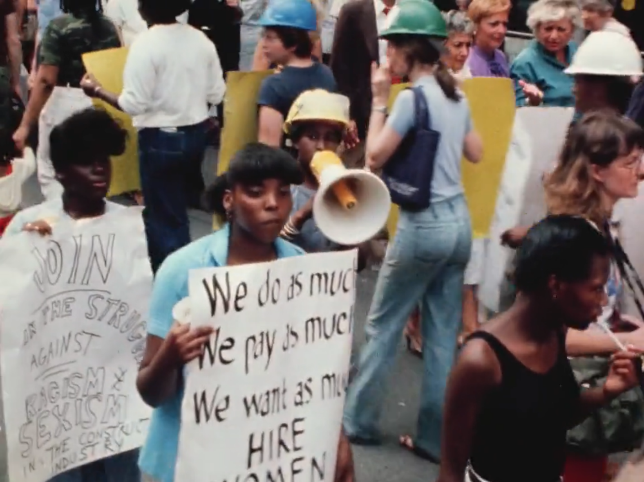
COVID-19 has demonstrated that the world we live in is deeply vulnerable. Economies are crashing, schools are at least partly online, and any sense of normalcy is difficult to maintain. COVID-19 has also demonstrated how dependent we are on each other, both for basic needs and the social interaction which is so central to our health and happiness.
In addition to mourning the losses we have experienced, many people are recognizing our mutual dependence by getting involved with mutual aid efforts. Mutual aid, in the simplest sense, is volunteering to help others with the resources that you have. In the midst of COVID-19, it could mean sewing masks for homeless people and/or those with socio-economic challenges, getting groceries for an elderly or immune-compromised neighbor, contributing to a community rent fund with your stimulus check, and more.
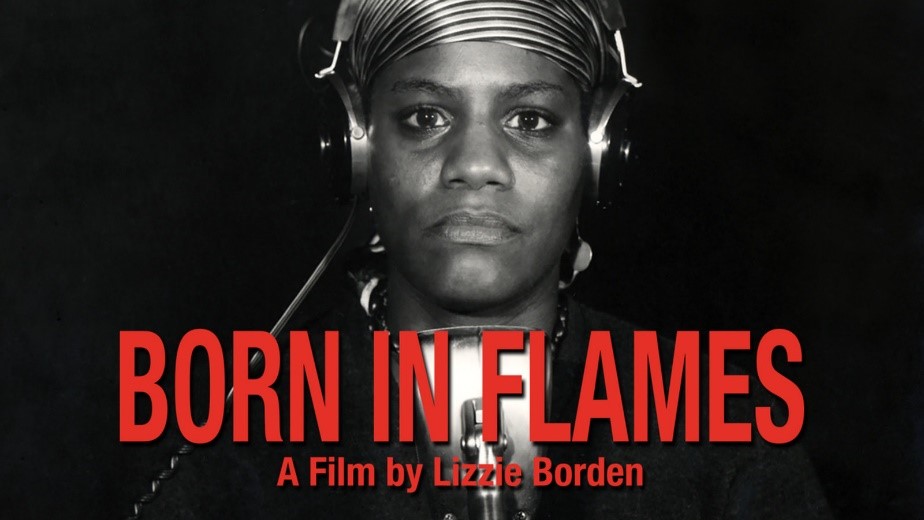
While many people are binging on pandemic-apocalypse movies like Contagion (2011, https://iucat.iu.edu/catalog/12133243) right now, if you’d rather see a film about mutual aid, Lizzie Borden’s award-winning Born in Flames (1983) is my go-to pick.
Born in Flames follows a documentary style, and its aesthetic bespeaks its late-70s/early-80s filming, but its New York City is highly fictionalized. In Borden’s New York City, it’s the 10th anniversary of a successful socialist revolution in the United States. The central conflict of the film is between socialist party members and journalists—who praise the equality and progress of the last 10 years—and the female and feminist activists who protest continued inequality.
Adelaide Norris is one such activist, who dedicates her life to organizing the “Women’s Army.” Although Norris is definitely a believer in the Second Amendment, most of the Army’s work is mutual aid. In one of the first and most iconic scenes of the film, two men who are sexually harassing a woman on the street are stopped by the Women’s Army – who circle them on bicycles and blow whistles until the violence stops. With these humble tools, the Women’s Army care for and protect others in their community.
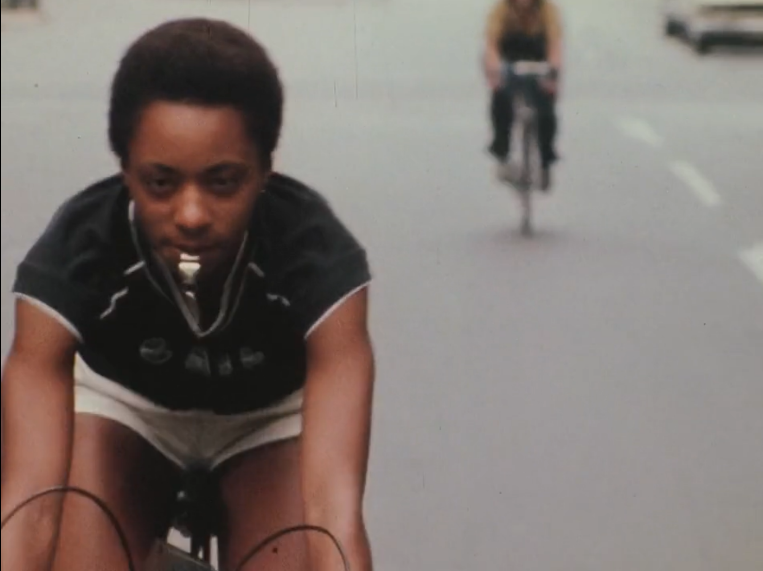
The socialist society of Born in Flames is not a perfect one – sexual and physical violence against women persists, and so do economic inequality and workplace discrimination against women, LGBT people, and people of color. In many ways, the situation that the women’s groups protest in Born in Flames mirrors that of the COVID-19 economic downturn in the United States: millions of people laid off and unemployed, many women assuming even more of the domestic labors of housework and childrearing, and workers in the service industry being hit harder by the shutdown (and attempted reopenings) of the economy.
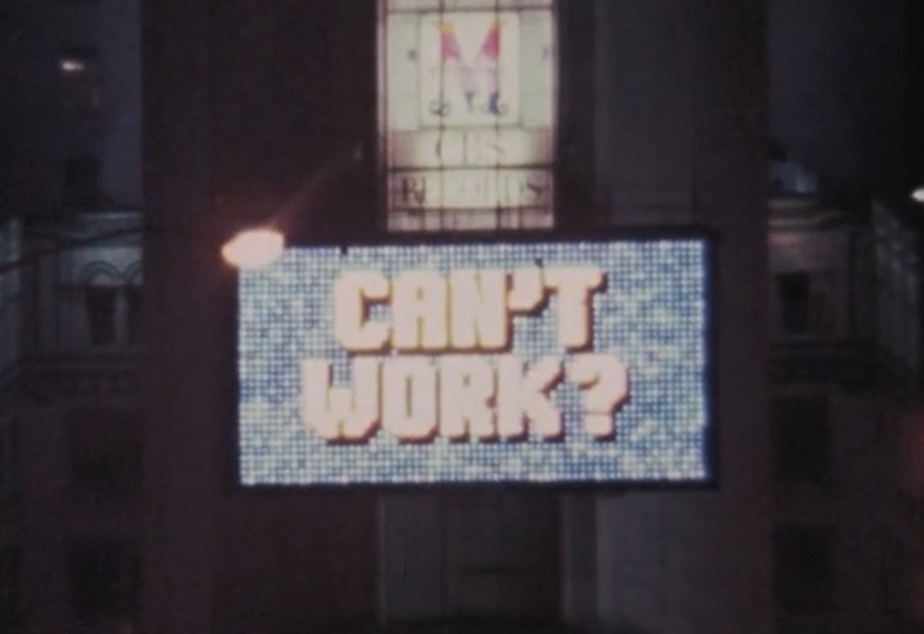
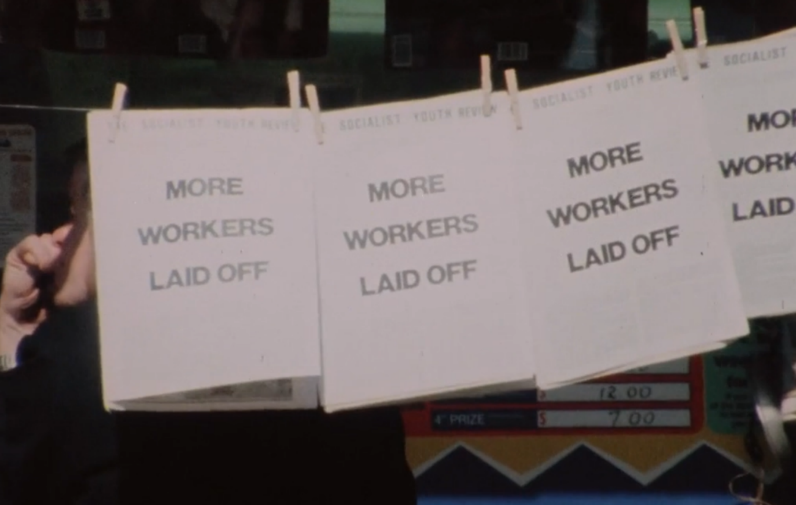
In addition to protesting these economic inequalities in the media and the streets, the women of Born in Flames work to close the gaps through mutual aid. They fight for wages for housework, but they also pitch in to feed and care for each other’s families. These conversations happen frequently in domestic spaces: kitchens, bedrooms, living rooms. Isabel, the film’s resident skeptic, describes the Women’s Army as just “a service to the community,” just “childcare and daycare centers and stuff like that,” but “not aggressive enough” to be taken seriously. What Born in Flames suggests, to the contrary, is that taking care of each other amidst inequality is some of the most radical work people can do.
#AloneTogether is one of many social media campaigns in the time of COVID-19, and Born in Flames makes me wonder what exactly that signifies in our world today. In one scene, Adelaide Norris tries to convince a friend to join the Women’s Army, but the friend insists that “I feel strong just as I am; I don’t need no backup.” Any one of us—or a friend or family member—might feel similarly invincible, unaffected by COVID-19, and exempt from social distancing. Born In Flames encourages us not just to be #Alone, but to be #AloneTogether: accepting our vulnerability and offering mutual aid. JW
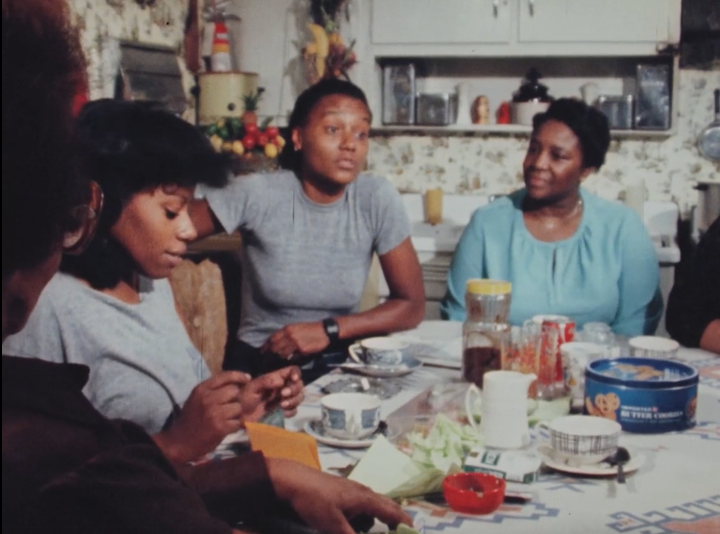
Josie Wenig is a Media Services student staff member and a graduate student in Gender Studies and Theology at IU.
Leave a Reply